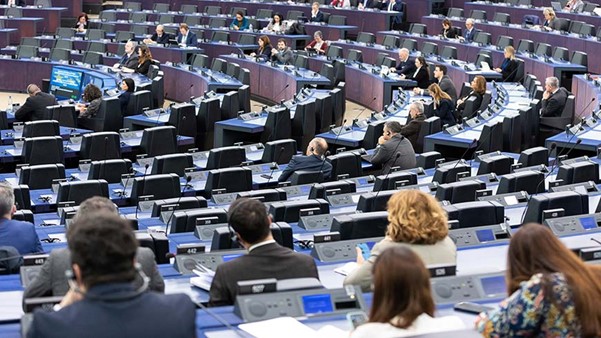This week, the Parliament Assembly of the Council of Europe (PACE) refused to ratify the credentials of the Azerbaijani delegation, citing the country’s poor human rights and democracy record. The decision concerns only the credentials of the twelve-member Azerbaijani parliamentary delegation sitting at the PACE while the country will continue to be a full-fledged member of the Council of Europe (CoE), Europe’s leading human rights body. Azerbaijan is one of the 46 members of CoE since January 2001.
The Azerbaijani government had long snubbed this international institution by ignoring its requirements for human rights reforms and by systematically dismantling the country’s independent civil society and hunting the critics of the government on political motives.
At the outset of each year, the PACE member countries’ parliaments present their delegations’ credentials to the PACE to vote on their annual ratification. In a debate on 24 January, PACE voted not to ratify the credentials of the Azerbaijani delegation, which were challenged on the opening day of its session, concluding that Azerbaijan has “not fulfilled major commitments” stemming from its joining the Council of Europe in 2001. “Very serious concerns remain as to [Azerbaijan’s] ability to conduct free and fair elections, the separation of powers, the weakness of its legislature vis-à-vis the executive, the independence of the judiciary and respect for human rights, as illustrated by numerous judgments of the European Court of Human Rights and opinions of the Venice Commission,” the Assembly said. It also mentioned the situation in Nagorno-Karabakh and the military operation in September 2023.
The Azerbaijani delegation to the PACE retaliated, saying the PACE was “being used as a platform to target some member states” and “core principles of the PACE are exploited by certain biased groups to advance their narrow interests.” As a safe-saving measure, the delegation left the PACE hours before the landmark vote on its credentials. It accused the PACE of exhibiting “Azerbaijanophobia, racism, and Islamophobia,” creating what it said was an “unbearable atmosphere” that it said caused Azerbaijan’s decision to “cease its engagement with and presence at the PACE until further notice.”
Years of suppression of criticism and failure to adhere to the commitments Azerbaijan undertook when joining the CoE over two decades ago is a well-documented problem. Instead of cleaning up its human rights record and addressing longstanding concerns in its two decades of membership, the government had stepped up its crackdown also lately, lashing out at human rights defenders and journalists, with spurious criminal charges and convictions. The numbers of political prisoners are on the rise, while the government continues to bring or threaten unfounded criminal charges against its critics, of whom some remain behind bars.
European Court of Human Rights had repeatedly found that the government had arrested several activists, to silence or punish them for criticizing the government. Norwegian Helsinki Committee (NHC) had documented the authorities’ use of a range of criminal charges, including drug and weapons possession, incitement to violence, hooliganism, tax evasion, and smuggling, to silence its critics.
Azerbaijani authorities repeatedly deny the existence of political prisoners in Azerbaijan and call them criminals, but the circumstances of the criminal investigations and numerous violations in legal proceedings leave little doubt that the charges against these persons are fabricated and intended to punish them for their activism and criticism of the authorities.In terms of Azerbaijan’s “lack of cooperation” with the PACE, the resolution said that the institution’s monitoring rapporteurs were not allowed to meet with political prisoners in Azerbaijan prisons while other PACE rapporteurs had been refused visits to the country to prepare reports. It also criticized that the PACE had not been invited to observe the forthcoming snap presidential election on 7 February.
While Azerbaijani pro-government media and several officials threatened that the country may leave the CoE, the Assembly’s resolution clearly said the delegation of Azerbaijan may resume its activities in the PACE when conditions provided by the PACE’s Rules of Procedure are met.
It’s high time for Azerbaijan to show true leadership by seriously implementing a number of corrective actions and fulfilling the human rights obligations it undertook 23 years ago when it joined the CoE. Releasing political prisoners and allowing civil society groups to operate unhindered, and cooperation with the PACE rapporteurs are the obvious place to start before the country’s parliamentary delegation resumes its PACE activities.
